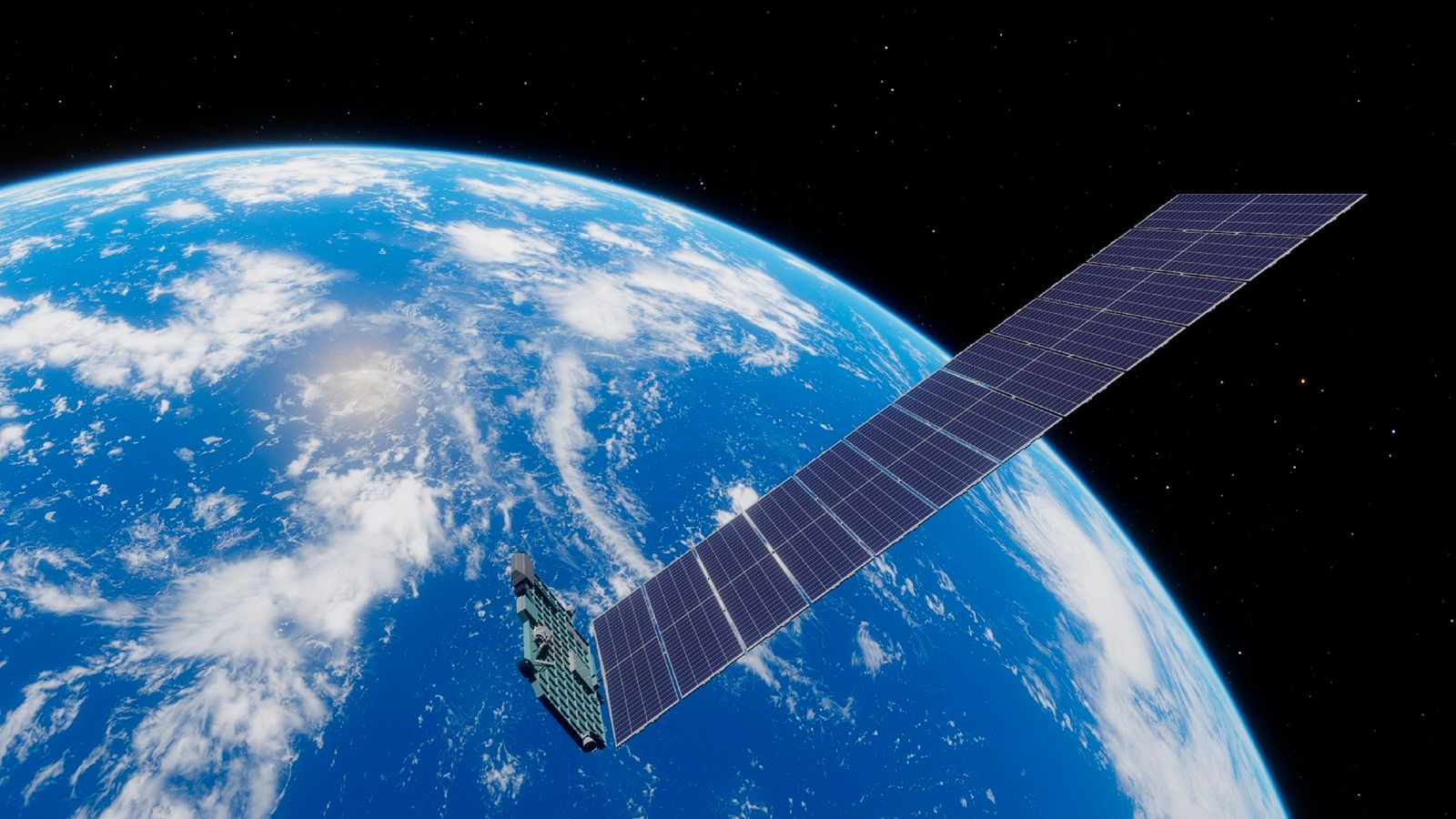Elon Musk’s Starlink satellites will be used in a UK government trial aimed at helping remote areas of the country get high-speed internet connections.
Three locations will have the equipment installed to begin with, allowing them to link up to the satellites and access broadband 10 times faster than previously available.
The technology allows broadband signals to be beamed down to Earth, in places where there is limited infrastructure on the ground, or it would expensive or difficult to put in.
Rievaulx Abbey in North Yorkshire Moors National Park, Wasdale Head in the Lake District and two sites in Snowdonia National Park, including an outdoor activity centre, will be involved in the trial.
“High-speed broadband beamed to Earth from space could be the answer to the connectivity issues suffered by people in premises stuck in the digital slow lane,” said Culture Secretary Michelle Donelan.
“These trials aim to find a solution to the prohibitively high cost of rolling out cables to far-flung locations.”
Starlink satellites can deliver internet speeds of up to 200 megabits per second (Mbps) – four times faster than the current UK average broadband speed of just over 50Mbps – according to the government, citing recent tests.
Elon Musk warned by European Union that Twitter could be banned unless he sticks to bloc’s digital rules
Elon Musk hits out at Apple – and claims tech giant threatened to block Twitter from App Store
Elon Musk reveals he would back Ron DeSantis in 2024 US presidential election
The government will begin with Starlink because of “the readiness and availability of its technology”.
But it said it was also talking to other provider, such as British satellite company OneWeb, about their possible involvement.
Starlink already has hundreds of thousands of internet users in around 40 countries.
Starlink is a satellite internet company, priding itself on its ability to deliver superfast broadband to the world’s most challenging environments – from rural areas with notoriously patchy network coverage, to – in the case of Ukraine – an active war zone.
Dr Viktor Doychinov, a satellite communications researcher with the Bradford-Renduchintala Centre for Space AI, describes it most succinctly as “broadband in space”.
“It’s like having all the base stations that normally provide mobile phone coverage up in the air, up in space, whizzing around the Earth,” he told Sky News.
Operated by Musk’s SpaceX company, Starlink is powered by thousands of satellites in the Earth’s low orbit, while receiver devices are used on the ground to make a connection and provide internet service.
Dr Doychinov said: “The equipment is portable, you can put it in your car or your truck, and go anywhere and still have internet. It’s small, mobile, and has a high data rate.”
The idea is that more satellites means lower latency service than other broadband firms, which traditionally use single satellites orbiting the planet. It has, however, led to complaints of light pollution and excessive space debris.
In the UK, the price of admission is a £460 hardware kit and a £75 monthly bill – a hefty premium compared to the providers you might be used to.
Following the trial, ministers will consider the viability of using satellite technology to connect “very hard to reach” locations.
These are the less than 1% of sites too difficult to upgrade using expensive physical cables, such as small islands or mountainous areas.
Read more:
Musk pledges to keep Starlink internet running in Ukraine ‘for free’
Musk’s Starlink broadband company will seek exemption to sanctions so it can cover Iran
Elon Musk’s Starlink in talks with UK to solve broadband problems
Starlink was activated over Ukraine following the Russian invasion in February this year.
Billionaire Musk‘s system has provided Kyiv with thousands of terminals, allowing Ukrainians to connect to the internet in places out of reach of the domestic system.
Click to subscribe to the Sky News Daily wherever you get your podcasts
Last month, the world’s richest man, who also heads up Twitter and Tesla, indicated his SpaceX company will continue funding its Starlink internet service in the war-ravaged country, a day after the 51-year-old tycoon said he couldn’t fund the project.
Along with the satellite trial, the UK government has announced a contract, worth more than £100m, with Northern Ireland-based provider Fibrus to build gigabit-capable broadband connections for up to 60,000 rural homes and businesses in Cumbria.
It is the largest contract so far as part of the government’s £5bn Project Gigabit scheme to roll out faster internet to all parts of the UK.










